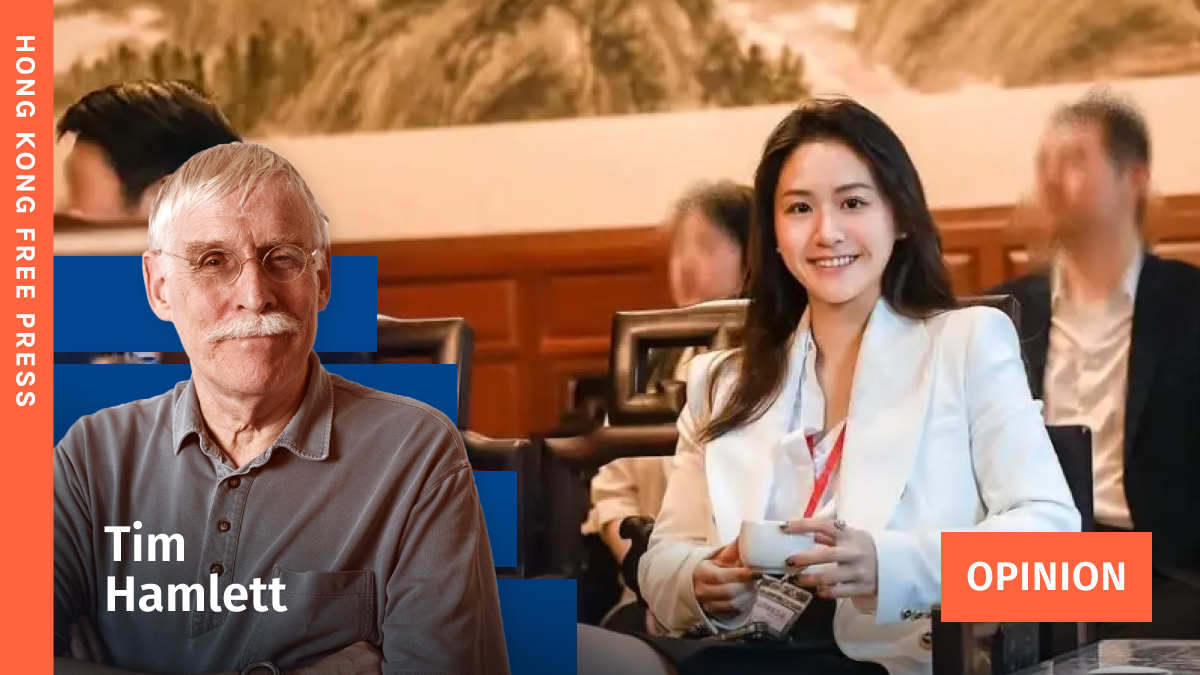By Tim Hamlett
Today, gentle reader, the defendant before you in the court of public opinion faces a charge of conduct likely to bring the Sai Kung District Council into disrepute. This woman, careless of her obligations to the council and the public, sought to enter the Miss Hong Kong Pageant.
No, indeed, the Miss Hong Kong Pageant is not in itself illegal. Many of us have happy memories of watching it in the days when there was only broadcast television to watch and not much choice of that. Every year, they picked a different hairdresser to attack the tresses of all the contestants. This often produced startling results, sometimes apparently inspired by the works of Hieronymus Bosch.
The competition retains its appeal for presentable young women, and this led to the temptation of Ms Angel Chong, who sits on the Sai Kung District Council as an appointee of the government.
After attending the first round of interviews, and before any result had emerged, she rashly told Instagram consumers what she had been up to. Some people then complained. Some of them were maybe simply taking advantage of a chance for a bit of soft resistance to the “reformed” electoral system.
Among those complaining, though, was Alice Mak, the secretary for home and youth affairs.
We may charitably suppose that Ms Mak was asked a question on this topic and felt some sort of reply was called for. On the other hand, it is perhaps a pity that she did not take the better course of replying that what Ms Chong did with her free time was nobody else’s business.
Ms Mak said that councillors, regardless of their profession, should follow the Performance Monitoring Guidelines for Members of the District Councils (hereafter, the PMG) and fulfil their duties. Ms Chong understandably interpreted this as a rebuke and promptly dropped out of the pageant.
Oddly enough, nobody made the traditional complaint about beauty contests, which is that they are demeaning to the contestants and corrupting for the spectators, because they imply that the most important thing about a young woman is her appearance.
This may be a bit unfair. In my early reporting days, I was often sent to cover early heats of the Miss Great Britain contest. These were held at a swimming pool, and most of the contestants were swimmers of pleasant appearance who had been talked into it to make up the numbers.
The prize money, which was modest at this stage, went to the professionals. You could spot them easily: carefully applied tan, enormous eyelashes, one-piece swimsuits and hair that had certainly not been in the pool. They also had the pose: one leg forward, body slightly turned to emphasise the – cough – chest, and a big smile.
These women were on a circuit, which was just a rather basic part of the entertainment business. Many knew each other, and in the summer, they turned up for pageants all over the place. It was, in the season, virtually a full-time job. They were all beautiful, though having been unhappily married for a while to a former Miss Southport, I was not tempted.
The Miss Hong Kong Pageant is a bit different because there isn’t a circuit in Hong Kong, so the organisers have no supply of shovel-ready contestants to call on. Those selected are all more or less amateurs and get a good deal of training in what could be described as how to make the most of themselves. And some of them do go on to … greater things.
If this means a career in showbiz, the matter of the Harvey Weinstein Syndrome comes over the horizon, though I have never heard anything of the sort about the Miss Hong Kong show itself. I do, though, recall a court case in which it emerged peripherally that the man who agreed to sponsor a TV programme was also accorded, as part of the deal, the right to cast all the female parts. I fear we all know what that was about.
Anyway, if we leave the feminist perspective aside and assume that Ms Chong’s virtue was not in danger, what is the problem? Apparently, many of the complainants thought that competing in the pageant was incompatible with discharging the time-consuming obligations of a councillor, and this may be what was bothering Ms Mak.
This brings us to the PMG, one of those government documents perhaps more often cited than read because it runs to 16 pages, with a further 19-page annexe, which appears to consist mostly of forms. There is nothing in the PMG for or against beauty contests.
District councillors are required to attend meetings; join committees; hold meet-the-public sessions; have (or share) an office, which is open 40 hours a week; and turn up at a minimum number of “district events.” Clearly, you could make a full-time job of this if you wanted to, but you could also, without violating the PMG, fit in the odd bit of beauty pageant.
Whether you should want to, I don’t know. Despite attempts, possibly sincere attempts, by their organisers to introduce such matters as talking, talent and ambitions, the path to victory is to look pleasing to men. And their requirements tend to be distressingly simple.
I once watched, on television, the Miss USA contest. My brother, also watching, announced at the stage when there were still 50 contestants that Miss Arkansas would win because she had “the biggest boobs.” And in due course, win she did.
Is a District Council member participating in this sort of thing a threat to the good repute of the council concerned? Only, perhaps, if the council’s reputation is rather fragile.
